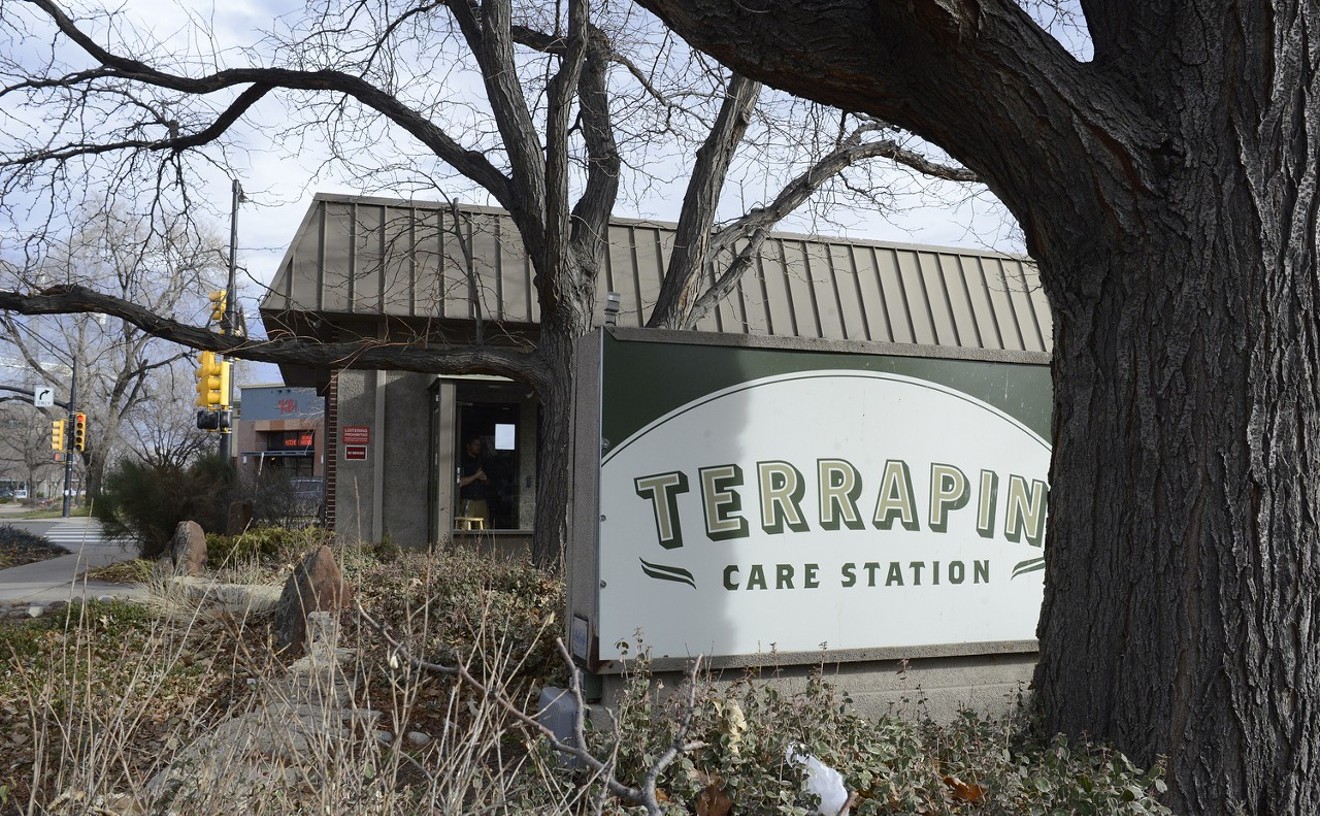When House Bill 1286 passed last year, advocates thought it would mark the beginning of a new era for children who use medical marijuana. So far, though, they're still waiting.
The bill expanded on a 2016 law that allowed child patients to take their MMJ medication at school. That law required that the medication be administered by a child's MMJ caregiver, usually the parents. The newer measure — known as Quintin's amendment, in honor of nine-year-old epilepsy patient Quintin Lovato in Eagle County — allows school personnel to also administer medication, to help patients faster and ease the burden on parents. The proposal passed through the state legislature by relatively wide margins.
However, of the 178 school districts in Colorado, we found just one district that has implemented the policy so far, and it allows school personnel to administer only CBD medication. That district is Eagle County Schools, the district Lovato attends.
"Unfortunately, that Eagle County rule is not an example that we want to use in the state. It contradicts itself in nature. In the end, it says the school personnel can administer CBD only," says Amber Wann, the mother of a young MMJ patient who pushed for the bill. "That's an issue for the majority of students who need multiple cannabinoids."
Some children may have to take medication with THC in it one day, like Wann's teenage son, who has a genetic mutation that results in seizures. Although he currently relies on a hemp-based CBD product, Wann says an emergency could require him to use nasal spray to combat seizures, which can severely harm his health and learning development when left untreated.
Wann's son currently attends classes in the Douglas County School District, one of the many that don't allow school personnel to administer marijuana or hemp medication of any kind. While caregivers of child MMJ patients can come to campus and administer the medication, as approved by the 2016 law, if the 2018 update were adopted in Douglas County, school personnel could do it, too.
"If my son has a seizure at school and I had the THC nasal spray, do you know how long it'd take them to call me to get over there, find him and administer it?" Wann asks. "By then, the seizure might be over. School personnel could get it to him in a timely manner and save an emergency situation, but they're not allowed to."
Why aren't school districts allowing school nurses or teachers to give children marijuana medication? The 2018 proposal didn't make this a requirement, but instead authorized each district's school board to opt in or out. Nearly nine months after the measure was signed into law, it continues to be a struggle to persuade school boards to opt in, according to Representative Dylan Roberts, the sponsor of Quintin's amendment.
Roberts, who represents Eagle County, worked with the Lovato family, Wann and other parents of MMJ patients to draft the law in 2018. The opt-in language was always part of the measure, he says, and was included to raise the chances of the bill passing through a legislature wary of forcing schools to break federal laws.
"We knew this was a possibility by making it permissive rather than mandatory, but we made it permissive in good faith," Roberts says. "I think people like Amber and other moms who were really a key part in getting the bill passed, they were doing that to get their kids the help they needed. They probably foresaw this happening, and it's unfortunate that it's coming to pass. But sometimes you pass legislation looking for long-term gains, and I think more districts will jump on board."
But first, one big domino might have to fall. Nearly all of Colorado's school districts are members of the Colorado Association of School Boards, a state and federal lobbying organization that advised schools not to opt in to Quintin's amendment. "Since medical marijuana continues to be considered an illegal controlled substance under federal law, CASB makes sure districts know they're faced with risks when school personnel administer medical marijuana to a student," explains CASB communications director Susan Meek.
According to Meek, CASB is waiting for the federal government to amend the Drug-Free Schools and Communities Act, a law that bans any schools receiving federal funding from allowing "the unlawful possession, use, or distribution of illicit drugs and alcohol by students and employees on its property or as part of any of its activities." She notes that CASB sent a memo to Congress asking lawmakers to amend the Drug-Free Schools and Communities Act to include an exception for MMJ patients who take non-psychoactive cannabinoids — but not THC.
Wann and parents of MMJ patients enrolled in the Castle Rock and Cherry Creek school districts don't want to wait for Congress, though, and argue that THC should be treated the same as CBD medication in Colorado regardless of its federal status. They've even started an advocacy crusade with Colorado for Safe Access, dubbed "The Green Crayon Campaign."
The campaign encourages parents, caregivers and advocates of young MMJ patients to send green crayons to their respective school's superintendents and school boards with letters urging them to adopt the law and allow school personnel to administer MMJ.
"These kids don't need their peers asking about why their mommy is here every day," Wann says. "This current attitude isn't surrounded around compassion."
[
{
"name": "Air - MediumRectangle - Inline Content - Mobile Display Size",
"component": "12017618",
"insertPoint": "2",
"requiredCountToDisplay": "2"
},{
"name": "Editor Picks",
"component": "17242653",
"insertPoint": "4",
"requiredCountToDisplay": "1"
},{
"name": "Inline Links",
"component": "18838239",
"insertPoint": "8th",
"startingPoint": 8,
"requiredCountToDisplay": "7",
"maxInsertions": 25
},{
"name": "Air - MediumRectangle - Combo - Inline Content",
"component": "17261320",
"insertPoint": "8th",
"startingPoint": 8,
"requiredCountToDisplay": "7",
"maxInsertions": 25
},{
"name": "Inline Links",
"component": "18838239",
"insertPoint": "8th",
"startingPoint": 12,
"requiredCountToDisplay": "11",
"maxInsertions": 25
},{
"name": "Air - Leaderboard Tower - Combo - Inline Content",
"component": "17261321",
"insertPoint": "8th",
"startingPoint": 12,
"requiredCountToDisplay": "11",
"maxInsertions": 25
}
]












